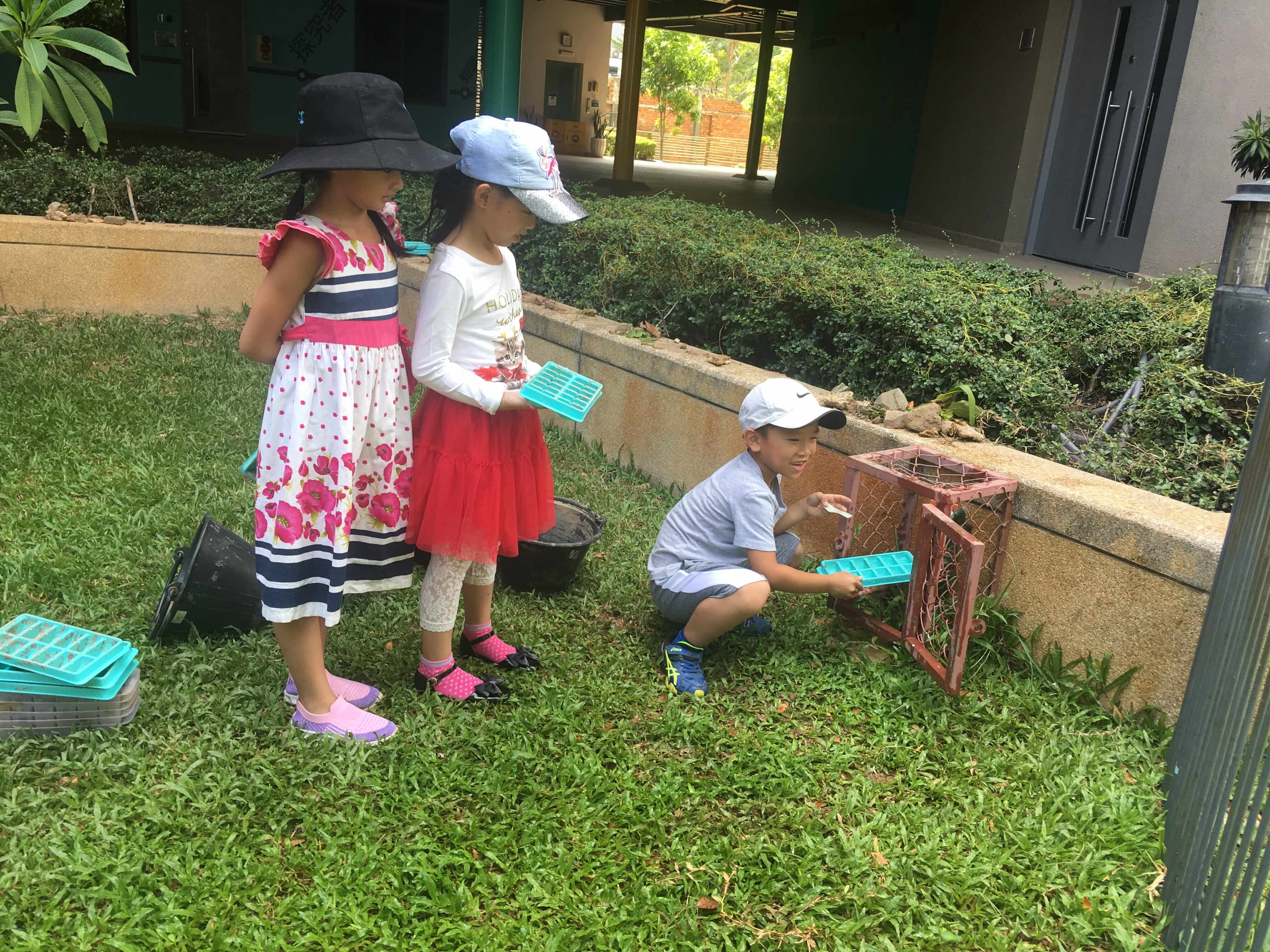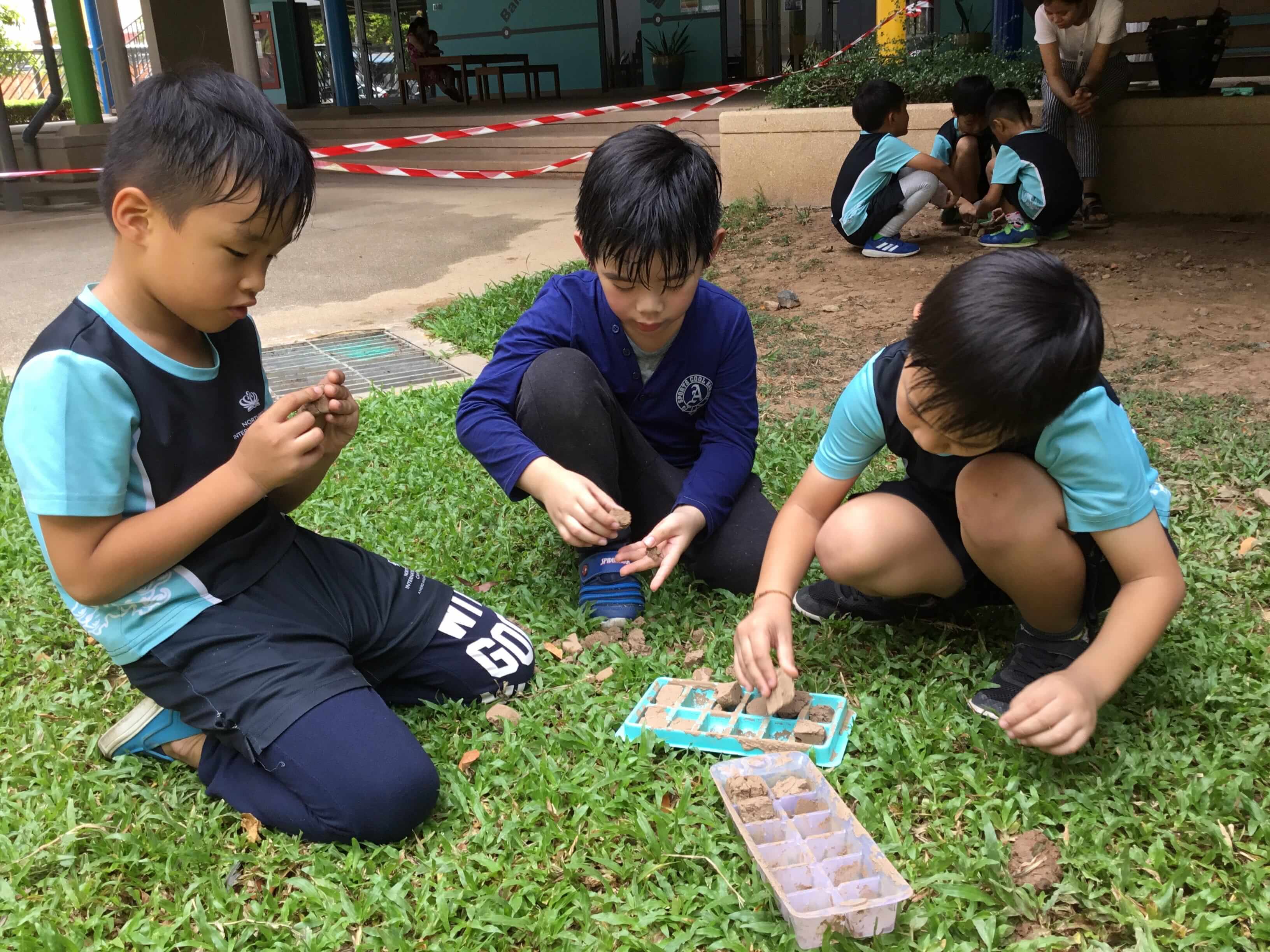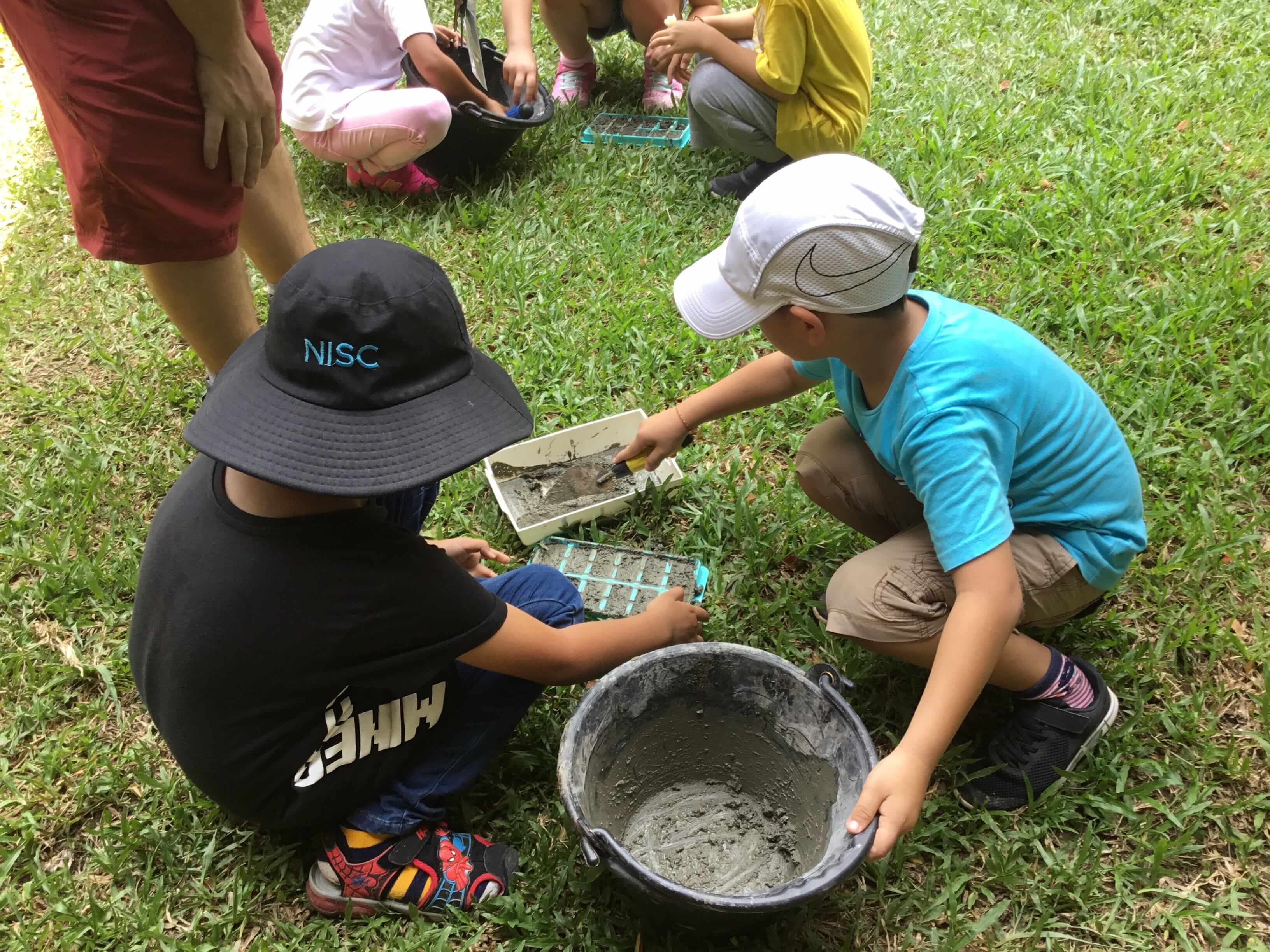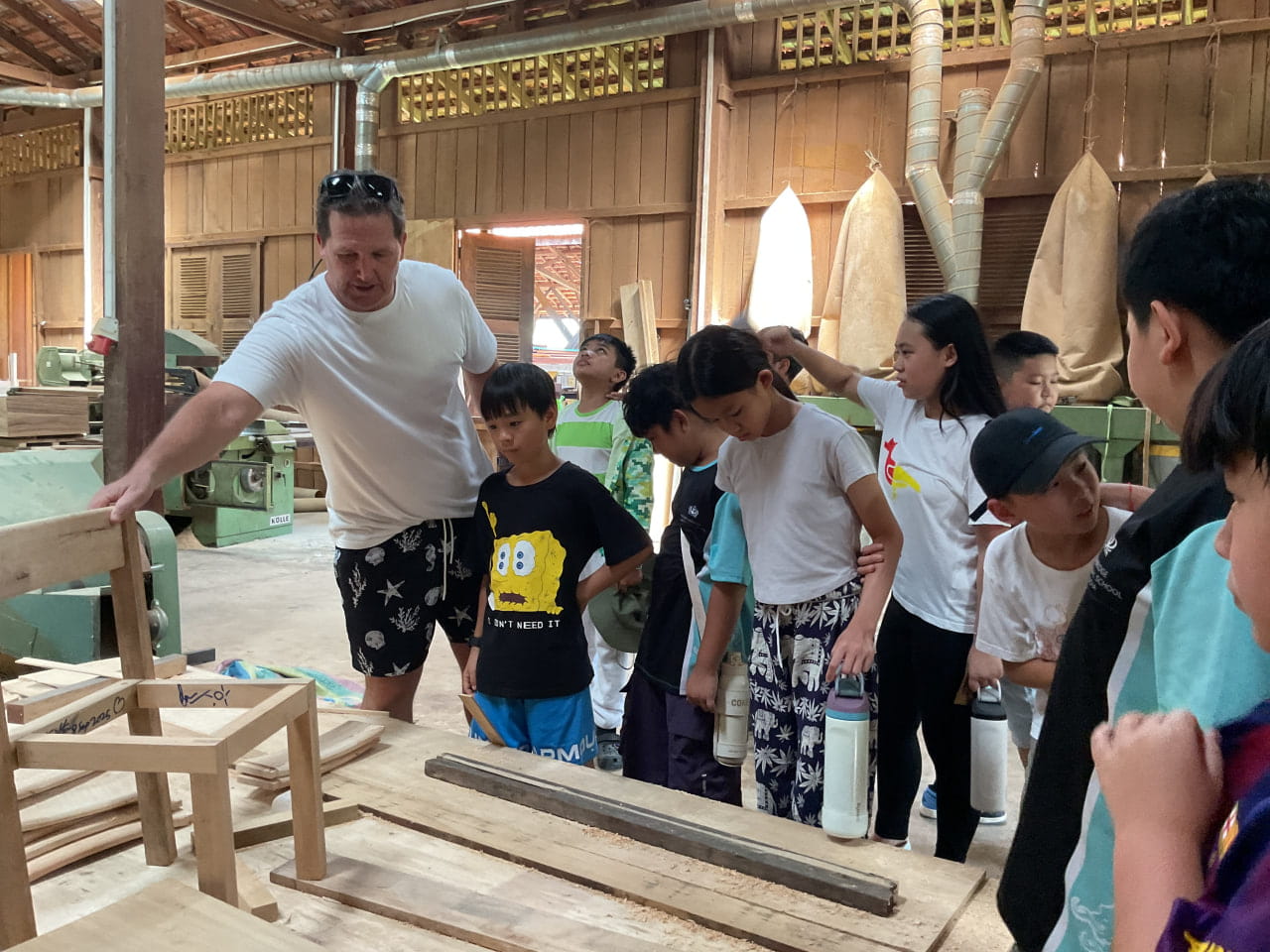Why we're engaging our Northbridge kindergartners in real-life, meaningful science inquiry Science for all ages is best learned through hands-on inquiry. Our Kindergarteners at Northbridge International School Cambodia have been highly engaged in real-life, meaningful inquiry through our Homes and Structures Unit of Inquiry.
Science for all ages is best learned through hands-on inquiry. Our Kindergarteners at Northbridge International School Cambodia have been highly engaged in real-life, meaningful inquiry through our Homes and Structures Unit of Inquiry.
The inquiry began in the Makerspace. Our children used their knowledge of houses to build a structure only using paper and cardboard. After discussions about the houses we have seen in real life, the children started building houses using mud. The first step was to create mud bricks.

Meaningful exploration through their senses allowed the children to understand more about the properties of mud, which involved a deep scientific investigation. The children observed how the mud set; supporting them to begin to understand reversible and irreversible changes. They used the mud bricks to make houses, which were unfortunately destroyed in our recent thunderstorms!
From this, the children decided that they would need to build with something a little more sturdy and some suggested cement. With careful supervision, the children were able to mix the cement, and pour it into a mould.

This exploration is invaluable for the children. They are learning to observe and create as scientists do! Please encourage your child (whatever age) to engage in messy, sensory play at home.
Here are some ideas on how you can support this:
- explore mud
- have a very bubbly bubble bath
- bake together
- paint together











